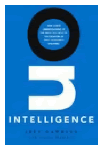CSCI 6508 Neurocomputing / NESC 4177 Theoretical Neuroscience (Fall 2006)
Fundamentals in Computational Neuroscience
Paper guideline for final project paper
Here are some good SVM slides
SOM program as used in class
Here are some of my initial thoughts on project themes
Assignment 3 is due Tuesday Oct 10 in class
Assignments and other news will be posted here. Please check frequently.
A program for Assignment 1 question 4 and a conductance-based synaptic model
Assignment 2 is due Thursday, Sept. 28 at start of class.
The program to answer part of assignment 1 includes the main script and a function file.
I will give a lecture on a (biased) history of neuroscience progress at King's College, Sept. 21, 7pm
Assignment 1 is due Tuesday, Sept. 19 at start of class.
This course introduces the principles of information-processing in the brain. We concentrate on the functionality of single neurons, networks of neurons, and large-scale neural architectures for specific cognitive functions. The course includes a review of solving basic ODE’s numerically and the use of the MATLAB programming environment.
A major part of the course includes an individual research project which requires a literature survey and the implementation of some simulations. Individual meetings are expected. The evaluation will be mainly based on the research paper.
Specifically we will concentrate this year on the following four areas (not necessarily in this order)
- Learning some techniques
a. MATLAB programming
b. Numerical integration of ODEs
c. Random variables and probability distribution
d. Research, writing and presenting scientific work - Basic neuroscientific models and concepts
a. Spiking neurons
b. Synaptic plasticity
c. Neuronal and functional networks
d. Memory and learning - Machine learning
Machine learning has traditionally been strongly associated with computational neuroscience. We will highlight neural networks and more advanced recent machine leaning methods (in particular support vector machines) and contrast them with biological systems. ML methods are also becoming an important tool to analyse physiological and behavioral data. - How the brain works (New in 2006)
Required: |
|
Thomas P. Trappenberg Fundamental of Computational Neuroscience Oxford University Press, ISBN 0-19-851583-9 |
| Highly recommended: |
 |
Jeff Hawkins with Sandra Blakeslee On Intelligence Times Books, Henry Holt and Company ISBN 0-8050-7456-2 |
100% Projects (but N-1 Assignments must be completed to be eligble for project)
A project in this course typically follows a published research article, compares it to other papers on this topic (which requires a literature search), implements at least parts of the models in the target article, and tries to extend the model (or its application) in some way. It is not required to generate new scientific hypothesis, but your project has to demonstrate solid scientific work and critical thinking. The project findings will be presented in a presentation to the class and also written up in form of a conference paper following specific guidelines given later in the course.
The projects will be chosen appropriately for CSCI 6508 and NESC 4177. I expect more self-driven research by graduate students and will provide specific quidance to the undergraduate students.It is important for students to be aware of the Intellectual Honesty regulations at Dalhousie University. Please see http://plagiarism.dal.ca/ for more information. Any suspected cases of plagiarism will be forwarded to the Senate Discipline Committee.
